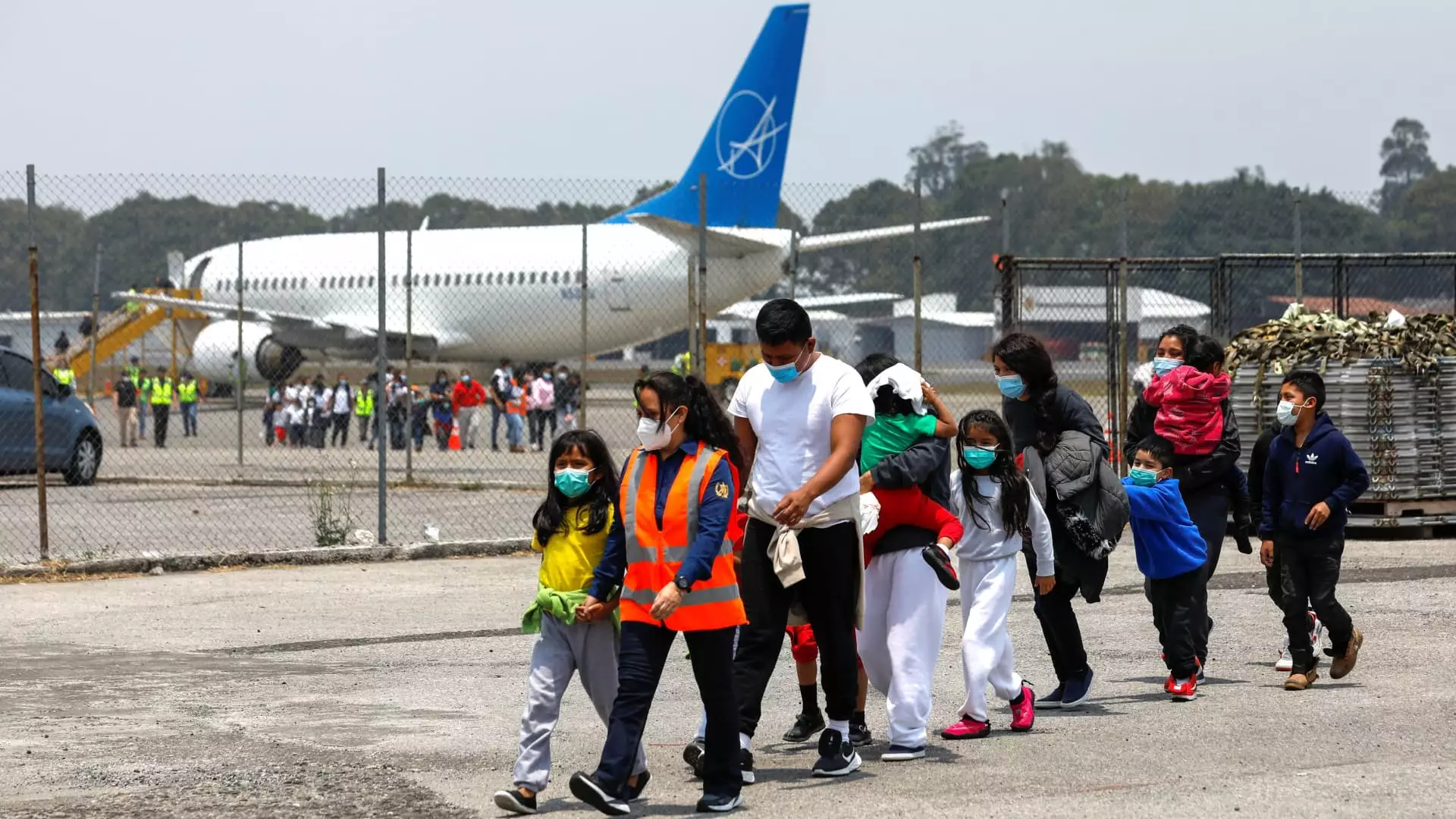The recent ruling by U.S. District Judge Brian Murphy serves as a damning indictment of the United States’ immigration policies, particularly under the Trump administration. At the center of this ruling is the harrowing experience of O.C.G., a gay Guatemalan man who faced the terrifying prospect of persecution due to his sexual orientation. The ruling not only illuminates a haunting story of personal struggle but also exposes the deeper, systemic flaws surfacing within immigration practices that stress efficiency over humanity. The ruling came just days after the Justice Department conceded that a critical error had occurred in O.C.G.’s case—an error that placed him back into the very conditions he had fled.
The Misapplication of Due Process
Murphy’s decision encapsulates the violation of due process, a constitutional right that should be the bedrock of any judicial system. As Murphy stated, “Due process is, in some sense, binary—one either receives what the Constitution requires, or one does not.” In this instance, the government failed utterly to afford O.C.G. a fair hearing regarding his fears of persecution should he be sent back to Mexico, particularly after already suffering greatly at the hands of violence there. The notion that he was sent to Mexico despite no inquiry into his safety needs highlights a system more interested in deportation quotas than ensuring human dignity. This ruling is more than a correction; it’s a resounding call to examine the integrity of our immigration protocols.
The Human Cost of Immigration Policy Mistakes
The devastating repercussions of such blunders extend beyond mere paperwork; they deeply affect the lives of real individuals. In O.C.G.’s case, following his deportation to Mexico, the choices he faced were grim—either endure extended detention awaiting asylum or return to the very nation where he encountered violence and death threats. It’s unthinkable that an American judicial system would tacitly endorse such stark options, effectively stripping someone of their autonomy and safety while applying broad strokes of legislation that label them as mere statistics. O.C.G.’s experience isn’t an isolated incident but rather emblematic of a pervasive culture of indifference that the current administration perpetuated regarding marginalized communities such as the LGBTQ+ population.
Mistakes and Misjudgments: A Pattern of Negligence
The Justice Department’s acknowledgment of erroneous claims in O.C.G.’s case reflects a perplexing trend: systemic negligence. The government’s approach to immigration enforcement highlighted by hurried deportations without legal foundation rings alarm bells about morality and accountability. The case of Kilmar Abrego Garcia, another individual erroneously deported even against court orders, underscores an unsettling pattern wherein human lives are subject to bureaucratic oversight and incompetence. It is profoundly troubling that such errors are repeatedly occurring, revealing not only a failure in the execution of immigration laws but also an alarming lack of oversight in safeguarding human rights.
Legal Advocacy: A Beacon of Hope
Amidst this grim narrative, legal advocacy organizations such as the National Immigration Litigation Alliance are proving crucial in rectifying these injustices. The determination exhibited by O.C.G.’s legal team demonstrates the essential role of advocacy in challenging a system that often appears callous to the plight of vulnerable individuals. Their relief upon receiving Murphy’s ruling illustrates the thin line between hope and despair that so many in the immigrant community walk daily. The Emma Lazarus phrase “Give me your tired, your poor” is often invoked to invoke an inclusive spirit in American society, yet the glaring dissonance between this ideal and current policies cannot be ignored.
A Call to Action for Reform
Ultimately, O.C.G.’s experience serves as a rallying cry for meaningful reform within the immigration system. A shift is necessary, one that reorients the focus of immigration policy back toward the foundational tenets of humanity, dignity, and respect for all individuals. As advocates and citizens, we must remain vigilant and vocal against policies that dehumanize and disregard the rights of those seeking refuge. Only then can we start to mend a fractured system and honor the values upon which this country was founded. The case stands as a powerful reminder that justice delayed can often be justice denied, and the repercussions of these policies echo far beyond the confines of immigration courts.

Leave a Reply